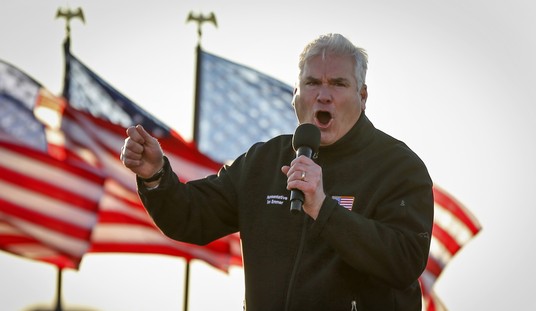Expect a lot more of these ads in 2010 as Americans begin to blame the party in charge for the state of the economy — and for blowing almost a trillion dollars on pork rather than real stimulus. Sean Duffy clips together a few glib quotes from Rep. David Obey (D-WI), one of the chief architects of Porkulus, showing a relative lack of concern over mundane issues such as accountability and deliberation:
The quotes come from an NPR interview Obey gave which shows a rather cavalier attitude towards responsibility, especially when considering the $787 billion context of the question:
SEABROOK (voice-over): Instead of Congress, hundreds and hundreds of public servants all over the country will decide how to spend the economic stimulus money . . . But when you pull earmarks out of the bill, you also change the balance of power in the government. If members of Congress aren’t writing into the bill how the money is to be spent, then someone else is making those decisions . . . When this bill passes, a Niagara Falls of money will flow out of Washington and into the accounts of state highway commissioners, governors and legislatures, local school boards, county executives, even mayors . . .
OBEY: We simply made a decision, which took about three seconds, not to have earmarks in the bill.
SEABROOK (voice-over): This is David Obey, the chairman of the House Appropriations Committee. He helped write this bill, and he does not like being asked about earmarks.
OBEY: And with all due respect, that’s the least important question facing us on putting together this package.
SEABROOK: Does that mean, though, that Congress will have less control and less, in fact, ability to say, “You spend it in the way we wanted you to spend it”—
OBEY: Of course it does. Of course it does. So what? This is an emergency. And so, with all due respect, we have got to simply find a way to get this done as fast as possible, and as well as possible, and that’s what we’re doing.
SEABROOK: Aren’t there a thousand ways that this money could be spent badly, though?
OBEY: There are a thousand ways it could be spent badly. There are a thousand ways it could be spent well. So what’s new?
SEABROOK: What’s new is that you’re not telling them how to spend it as much as you usually do.
OBEY: So what?
SEABROOK: Won’t you be responsible when it’s spent badly, then?
OBEY: No, the person who spends the money badly will be responsible. We are simply trying to build as many protections in as possible. We’ve got more oversight built into this package than any package in the history of man. If money is spent badly, we want to know about it, so we can hold accountable the people who made that choice. And guess what? Regardless of what we do, there will be some stupid decisions made.
Suddenly, though, Obey has belatedly realized that he is responsible for the way the money was spent, since he authorized it and neglected to ensure transparency, competence, and accountability. This week, Obey demanded answers in a bit of grandstanding theater, but as this interview from February shows, Obey failed when it counted.








Join the conversation as a VIP Member